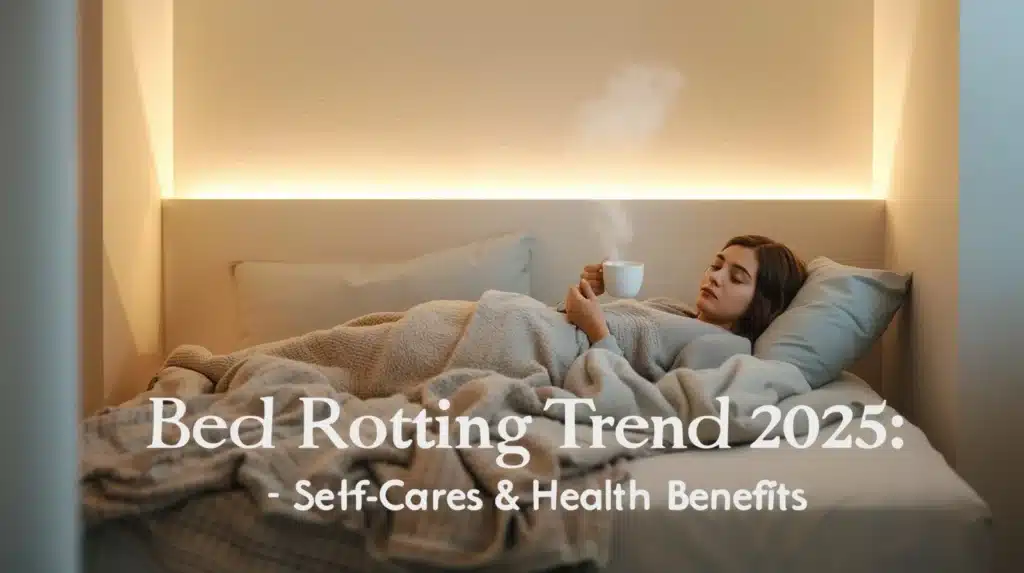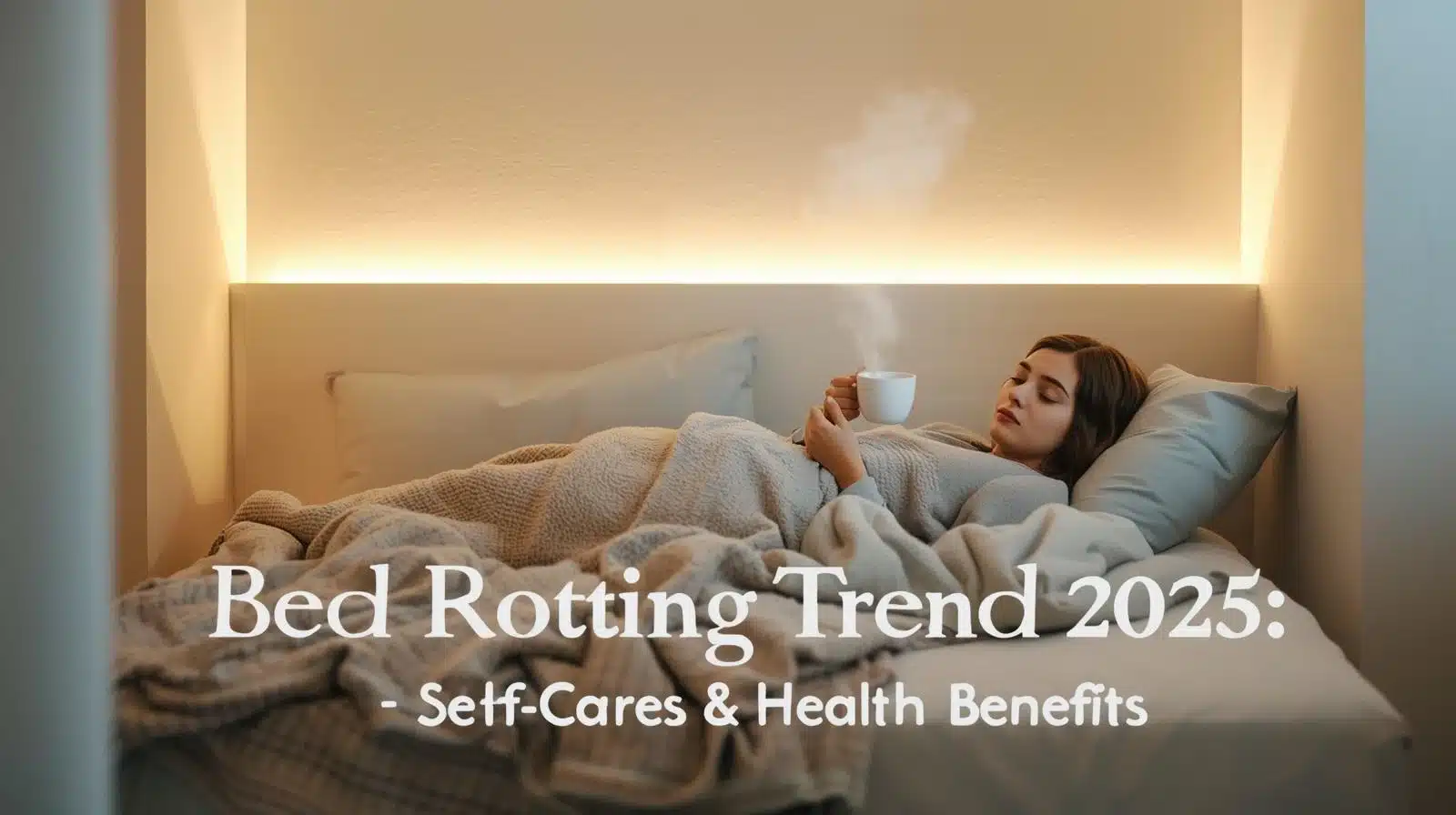Bed Rotting Trend 2025 Discover the viral “Bed Rotting” self-care trend of 2025. Learn its health benefits, risks, and expert tips to use rest for stress relief, better sleep, and improved mental wellness.
Bed Rotting: The 2025 Self-Care Trend Everyone Is Talking About
In 2025, health and wellness trends have shifted toward simplicity, and one of the most viral practices is Bed Rotting. If you’ve scrolled through TikTok or Instagram, chances are you’ve seen people talking about it. But what exactly is this trend, and how can it impact your health? Let’s explore the benefits, risks, and expert advice about this new self-care routine.

What is Bed Rotting?
Bed rotting is the practice of spending extended time in bed—not necessarily sleeping, but resting, scrolling social media, watching movies, or simply relaxing. It started as a Gen Z self-care movement and has now become a global conversation about how we handle stress and burnout.
Health Benefits of Bed Rotting
- Stress Relief – Taking time off helps your mind recover from daily pressure.
- Improved Sleep Quality – Resting in bed can help regulate your sleep cycle.
- Mental Wellness Boost – A short break in bed can reduce anxiety and emotional fatigue.
- Energy Recharge – Lying down with no responsibilities helps recharge your body and mind.
- Bed Rotting Trend 2025

Potential Risks
Like any trend, overdoing it can have downsides Bed Rotting Trend 2025:
- Reduced Productivity – Too much bed rest can affect your daily routine.
- Physical Issues – Staying inactive may lead to back pain, poor posture, and low metabolism.
- Mental Health Concerns – In extreme cases, it may worsen feelings of isolation or depression.

Healthy Way to Try Bed Rotting
If you want to adopt this trend without negative side effects:
✅ Limit your “bed rotting” time (1–2 hours max).
✅ Pair it with relaxing activities like journaling or meditation.
✅ Maintain a balance with physical activity (walk, yoga, or stretching).
✅ Use it as an occasional reset, not a permanent lifestyle.
Expert Opinion
Health experts suggest that rest is essential for stress management, but moderation is key. Instead of making it a daily habit, use bed rotting as a tool for self-care, recovery, and mindfulness.
Conclusion
Bed rotting is more than just lying in bed—it’s a reminder that our bodies and minds need rest and recovery. When practiced in moderation, it can improve your sleep, mental wellness, and energy levels. However, balance is important, and combining it with healthy lifestyle habits is the best way to enjoy its benefits.
Q1. Is bed rotting good for health?
Yes, in moderation. It helps with stress relief and relaxation, but overdoing it can harm your physical and mental health.
Q2. Can bed rotting improve sleep?
Yes, occasional rest in bed can regulate your sleep cycle, but excessive lying in bed can disrupt it.
Q3. How long should I practice bed rotting?
Experts recommend keeping it short—1–2 hours as a break or self-care activity.
Q4. Who should avoid bed rotting?
People struggling with depression or chronic fatigue should consult a doctor before practicing this routine.
